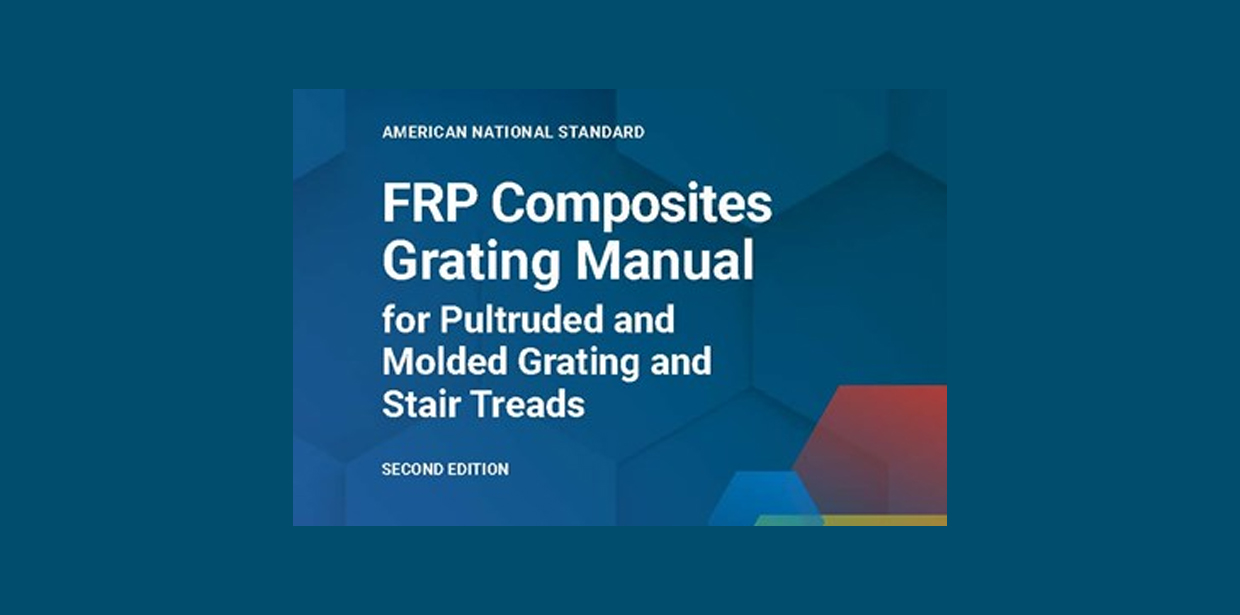ACMA Reaffirms FRP Composites Grating Manual as ANSI Standard
BY Composights
Published: 18 Aug 2025
The American Composites
Manufacturers Association (ACMA) has announced the reaffirmation of the ANSI/ACMA/FGMC-Grating
Manual-2017 (R2025) FRP Composites Grating Manual for Pultruded and Molded
Grating and Stair Treads. The standard received official approval from
the American National Standards Institute (ANSI) on April 29, 2025,
with the final action recorded in the May 9, 2025, edition of ANSI
Standards Action (VOL. 56, NO. 19).
Serving as a vital reference for
engineers, architects, and designers, the manual provides essential technical
data including:
- Performance-based load tables
- Manufacturing tolerances
- Ordering guidance to support accurate specification
and design decisions

Fiberglass reinforced polymer
(FRP) grating, used in industrial and infrastructure applications for over
50 years, continues to gain adoption due to its corrosion resistance,
lightweight properties, superior strength-to-weight ratios, and
non-conductivity. The material also maintains long-lasting color
integration, making it well-suited for demanding environments.
A distinctive feature of FRP
design highlighted in the manual is its focus on serviceability through
deflection limits rather than strength as the primary design criterion.
This approach delivers higher safety margins, giving engineers and
facility managers added confidence when specifying FRP solutions for critical
applications.
Source: acmanet.org









